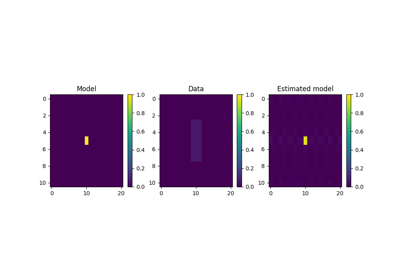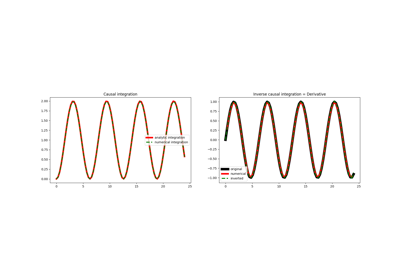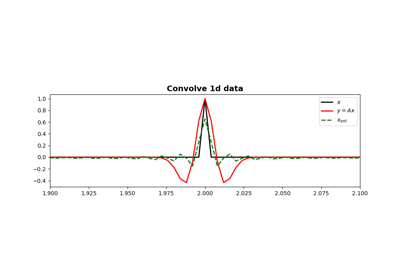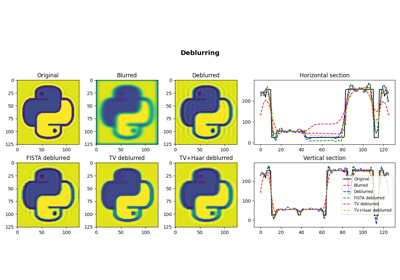pylops.signalprocessing.ConvolveND¶
-
class
pylops.signalprocessing.ConvolveND(N, h, dims, offset=None, dirs=None, method='fft', dtype='float64')[source]¶ ND convolution operator.
Apply n-dimensional convolution with a compact filter to model (and data) along a set of directions
dirsof a n-dimensional array.Parameters: - N :
int Number of samples in model
- h :
numpy.ndarray nd compact filter to be convolved to input signal
- dims :
list Number of samples for each dimension
- offset :
tuple, optional Indices of the center of the compact filter
- dirs :
tuple, optional Directions along which convolution is applied (set to
Nonefor filter of same dimension as input vector)- method :
str, optional Method used to calculate the convolution (
directorfft).- dtype :
str, optional Type of elements in input array.
Notes
The ConvolveND operator applies n-dimensional convolution between the input signal \(d(x_1, x_2, ..., x_N)\) and a compact filter kernel \(h(x_1, x_2, ..., x_N)\) in forward model. This is a straighforward extension to multiple dimensions of
pylops.signalprocessing.Convolve2Doperator.Attributes: Methods
__init__(N, h, dims[, offset, dirs, method, …])Initialize this LinearOperator. adjoint()Hermitian adjoint. apply_columns(cols)Apply subset of columns of operator cond([uselobpcg])Condition number of linear operator. conj()Complex conjugate operator div(y[, niter])Solve the linear problem \(\mathbf{y}=\mathbf{A}\mathbf{x}\). dot(x)Matrix-matrix or matrix-vector multiplication. eigs([neigs, symmetric, niter, uselobpcg])Most significant eigenvalues of linear operator. matmat(X)Matrix-matrix multiplication. matvec(x)Matrix-vector multiplication. rmatmat(X)Matrix-matrix multiplication. rmatvec(x)Adjoint matrix-vector multiplication. todense([backend])Return dense matrix. toimag([forw, adj])Imag operator toreal([forw, adj])Real operator tosparse()Return sparse matrix. trace([neval, method, backend])Trace of linear operator. transpose()Transpose this linear operator. - N :



